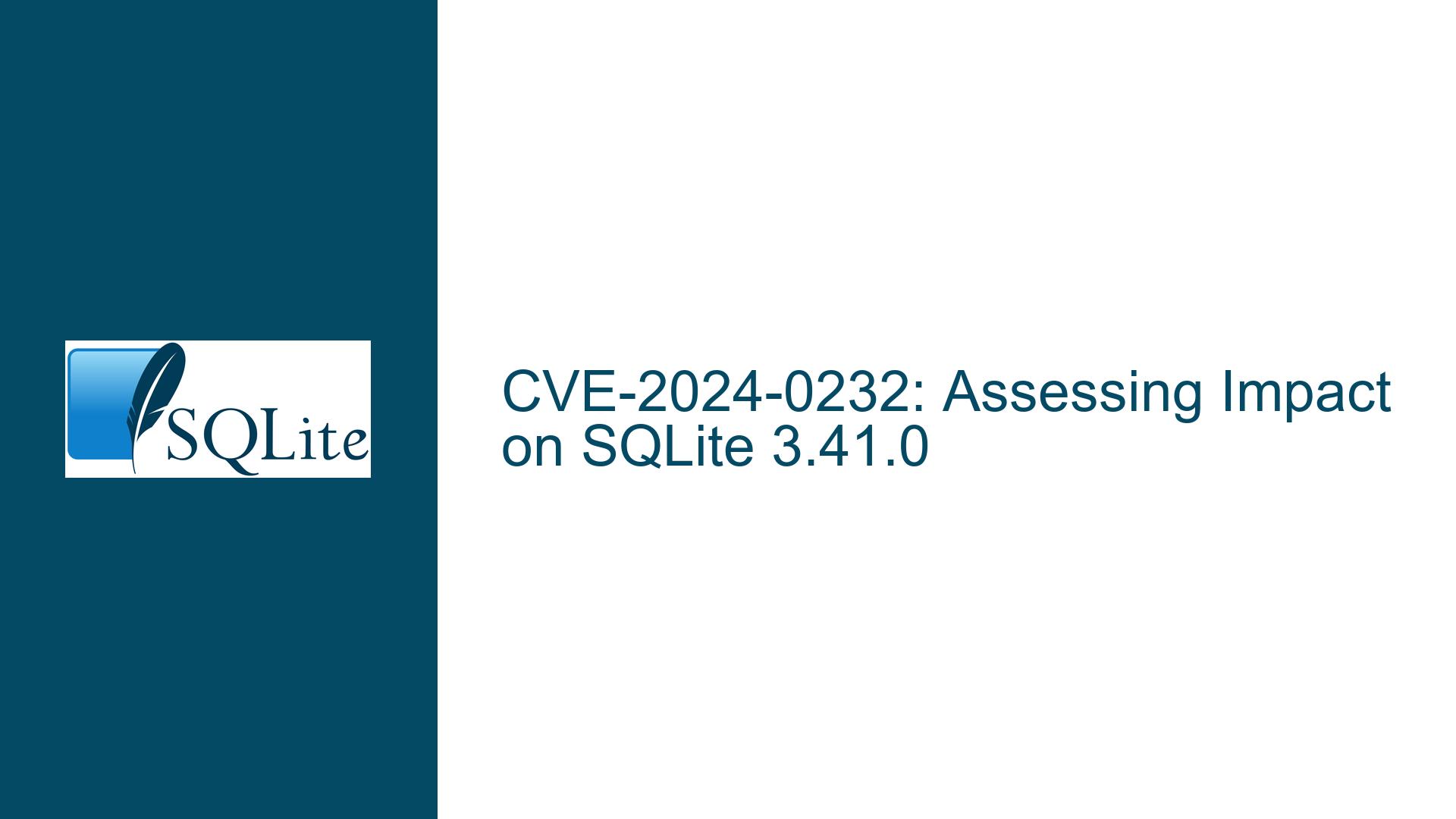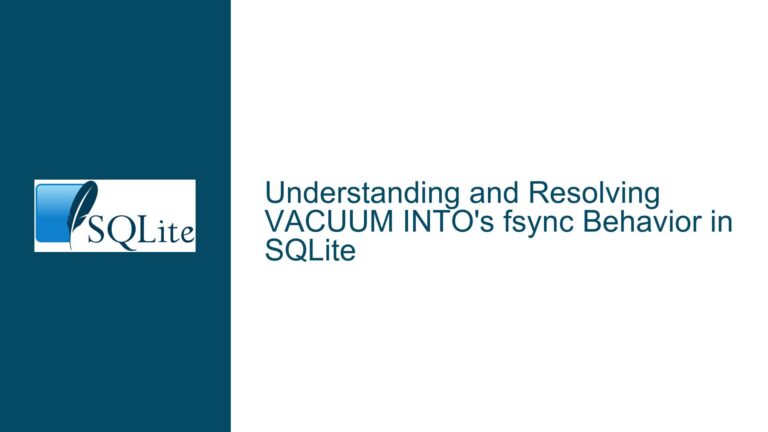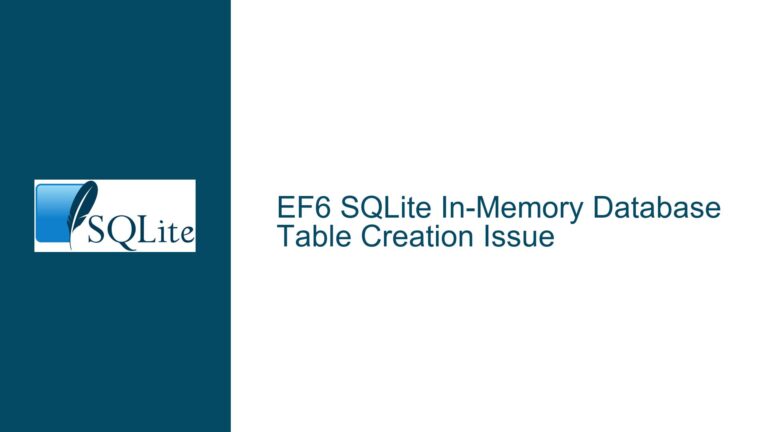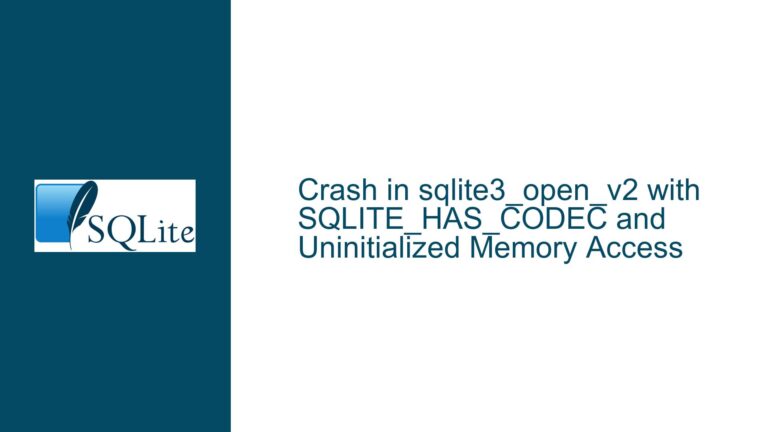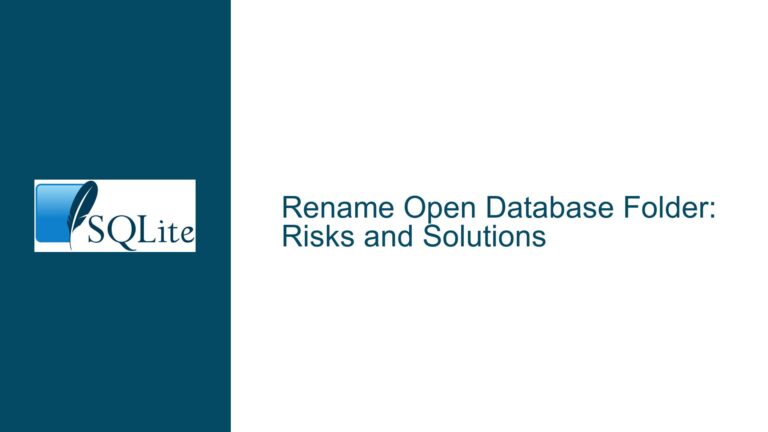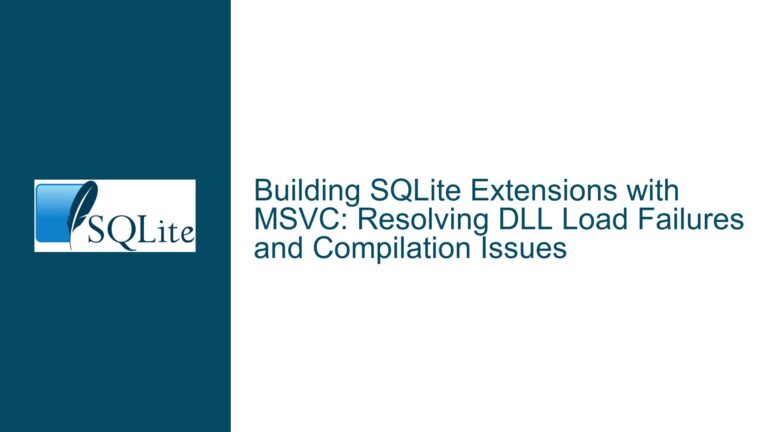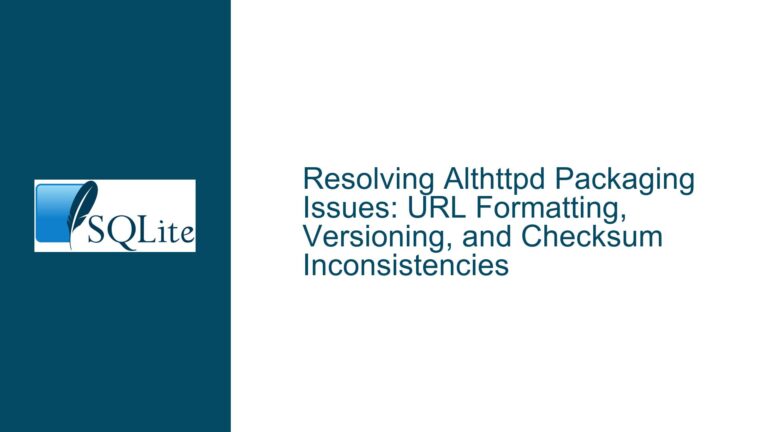CVE-2024-0232: Assessing Impact on SQLite 3.41.0
Vulnerability Context and SQLite Version Compatibility
The CVE-2024-0232 vulnerability involves a specific flaw in SQLite’s query processing logic, particularly in scenarios where nested SELECT statements or subqueries interact with aggregate functions. The vulnerability arises when the query optimizer misinterprets scope boundaries during query planning, potentially leading to memory corruption or unauthorized data exposure. The patch for this vulnerability was introduced in commit 3736d874229135abecb935d938346dee5429196a, which modifies the sqlite3WindowRewrite function to enforce stricter validation of window function contexts.
The original inquiry questions whether SQLite 3.41.0 is affected by this vulnerability. To answer this, we must examine the timeline of SQLite’s code changes. The vulnerability’s root cause traces back to a code modification introduced in commit 44f53b96472a660e42f4c4f33e01f0fc9c691440, which refactored the window function processing logic. This refactoring inadvertently created a scenario where improper scope validation could occur. SQLite 3.41.0 was released prior to the inclusion of commit 44f53b96472a660e42f4c4f33e01f0fc9c691440, meaning the refactored code responsible for the vulnerability was not yet present in that version.
However, the absence of the refactored code in 3.41.0 does not automatically guarantee immunity. Subtle interactions between older code paths and newer query patterns could theoretically expose similar flaws. For example, if a backported patch relies on structural changes introduced in later versions (e.g., variable renaming, function parameter adjustments), applying it to 3.41.0 may fail due to mismatched context. This aligns with the reporter’s observation that the patch from commit 3736d874229135abecb935d938346dee5429196a does not cleanly apply to 3.41.0.
Codebase Evolution and Vulnerability Propagation
The crux of the issue lies in understanding how SQLite’s code evolves between versions. SQLite employs a continuous development model where incremental changes are committed directly to the trunk. Releases are snapshots of the trunk at specific points in time. Commit 44f53b96472a660e42f4c4f33e01f0fc9c691440 introduced structural changes to the window function logic, which later became a prerequisite for the flawed code path addressed by CVE-2024-0232.
In SQLite 3.41.0, the sqlite3WindowRewrite function (central to the vulnerability) exists in a different form. Prior to commit 44f53b96472a660e42f4c4f33e01f0fc9c691440, this function did not include the logic that allowed improper scope validation. The vulnerability manifests only when both of the following are true:
- The query planner processes a
SELECTstatement containing a window function with a nested subquery. - The subquery’s aggregate function references columns from an outer scope without proper validation.
Since 3.41.0 lacks the refactored code from commit 44f53b96472a660e42f4c4f33e01f0fc9c691440, it does not execute the specific code path that permits the vulnerability. This explains why the patch from commit 3736d874229135abecb935d938346dee5429196a cannot be cleanly applied: the code it modifies does not exist in 3.41.0.
A secondary consideration is whether older versions exhibit analogous vulnerabilities due to different code patterns. For instance, pre-44f53b96472a660e42f4c4f33e01f0fc9c691440 versions might have similar flaws in how they handle subquery scoping, but these would be distinct from CVE-2024-0232. Without explicit testing or code analysis, such possibilities remain speculative.
Validation Strategies and Remediation Guidance
To conclusively determine whether SQLite 3.41.0 is affected by CVE-2024-0232, follow these steps:
Code Diff Analysis: Compare the source code of SQLite 3.41.0 with the post-
44f53b96472a660e42f4c4f33e01f0fc9c691440versions. Focus on thesqlite3WindowRewritefunction inwindow.c. If the function lacks the structural changes introduced in44f53b96472a660e42f4c4f33e01f0fc9c691440(e.g., modified variable names, altered loop structures), the vulnerability’s preconditions are absent.Exploit Reproduction: Construct a test query that triggers the vulnerability. A minimal example might involve a window function nested within a subquery that references an outer aggregate. Execute this query against 3.41.0. If no memory corruption or unexpected results occur, the version is likely unaffected.
Patch Compatibility Check: Attempt to backport commit
3736d874229135abecb935d938346dee5429196ato 3.41.0. If the patch fails due to missing functions or variables, this further confirms that the vulnerable code is absent.Version Timeline Verification: SQLite 3.41.0 was released on February 21, 2023. Commit
44f53b96472a660e42f4c4f33e01f0fc9c691440was merged on March 20, 2023, placing it outside the 3.41.0 release window.
Remediation:
- For 3.41.0 users: No action is required for CVE-2024-0232. However, monitor for other vulnerabilities patched in later versions.
- For versions containing commit
44f53b96472a660e42f4c4f33e01f0fc9c691440: Apply the patch from3736d874229135abecb935d938346dee5429196aor upgrade to SQLite 3.44.0 or newer. - If backporting is necessary, manually audit the code for equivalent flaws in older scope-handling logic.
This structured approach ensures that developers avoid misapplying patches or overlooking version-specific nuances, thereby maintaining the integrity and security of their SQLite deployments.
